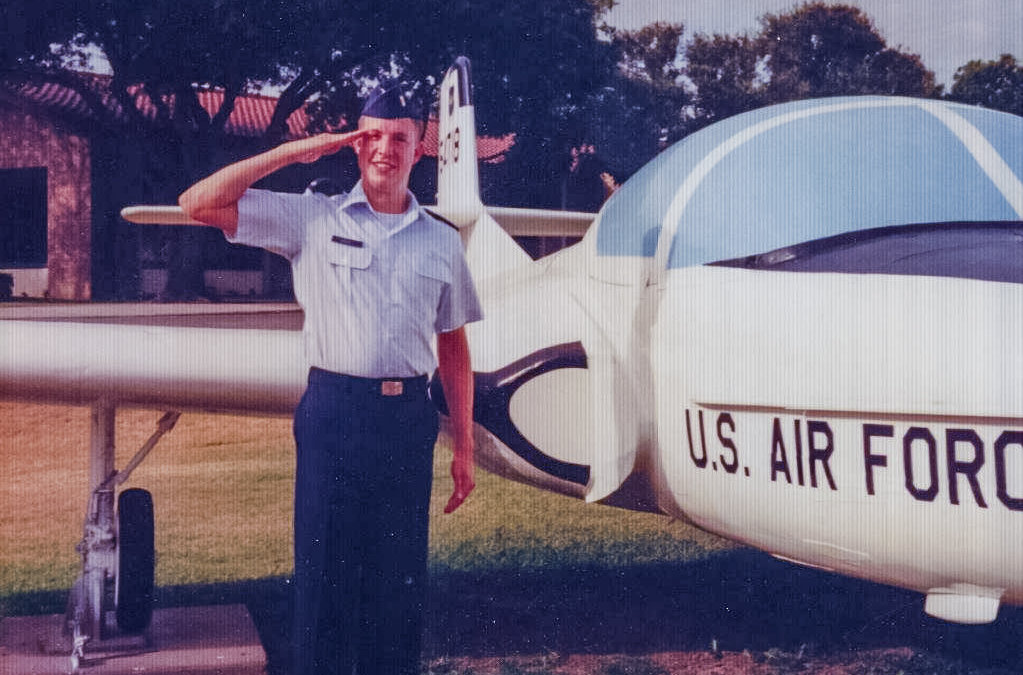Tom Cruise’s top open film, Top Gun: Maverick, features some of the special physiology involved with high-performance, and high-altitude aviation. I’ve previously written about being a flight surgeon in the United States Air Force and watching the latest Top Gun movie brought back recollections of my training in aerospace physiology.
At the opening of the film, Maverick gets ready to fly an experimental plane at the edge of the atmosphere. Although not needed to propel the story forward, the movie shows us his preparation for the flight in which he has a tight-fitting mask. The movie offers no explanation for his doing this, let me explain what was going on. Our atmosphere is mostly nitrogen. This inert gas does not dissolve well in our bodies. If we are exposed to a sudden drop in pressure, something that can happen with rapidly surfacing scuba divers or with pilots who suddenly evacuate a high-flying aircraft, the nitrogen bubbles out of our blood and body tissues like a quickly opened can of Coke. Those little bubbles can block blood vessels leading to strokes or damaging body tissues in conditions called decompression illness and decompression injury (DCI). One way to diminish the risk of this is to not breathe nitrogen. If no nitrogen is dissolved in the body, then no bubbles would form if a rapid decompression occurred. That is what Maverick is doing before the flight. He is breathing pure oxygen to purge nitrogen from his body protecting him from a DCI.
Another aspect of aerospace physiology that factors into the movie is the G-forces experienced by pilots when their aircraft make sharp turns and climbs. G stands for gravity and the number of Gs is the number of times stronger than the Earth’s gravity the pilot feels during the maneuver. For example, a 170-pound pilot executing a 4-G turn would feel like he weighed 680 pounds. The F-18 typically maxes out at 7.5 Gs and in the movie is pushed beyond that. What do these forces do to the human in the plane? (You can watch a video of me pulling 9Gs in a centrifuge here.) With those G-forces, the blood is pulled away from the head. Without blood in the brain or in the retina at the back of the eyes, the pilot will lose vision and could become unconscious. In the movie, there are several POV (point-of-view) shots that show the graying out of the vision as blood is pulled out of the retinas on high-G maneuvers. And one of the pilots goes beyond gray-out into a full GLOC (pronounced gee-lock). GLOC stands for G-induced loss of consciousness. As we see in the movie, when that happens the unconscious pilot loses control of the aircraft is can easily be killed in a plane crash.
There are a couple of things used to prevent GLOC: one is a piece of equipment the other is a technique. Pilots of high-performance airplanes, like the F-18s seen in the movie, wear a G-suit. This is a garment worn over their other clothing will dynamically squeeze their legs and pelvis during a high-G turn forcing some of the blood back up towards the brain. The other is a breathing technique that is seen in the movie. During high-G maneuvers the pilots will strain hard and only breathe in little puffs. This straining also serves to force blood back up towards the brain. When you are doing it, you can see your vision becoming more gray or less gray depending on how hard you strain. To prepare for this, these pilots must maintain excellent physical fitness and leg strength. They can also practice in a centrifuge.
Top Gun: Maverick is a fun and entertaining movie. The movie makers put effort into accurately portraying some of the physiological issues involved with high-performance and high-altitude aviation. And now when you watch, or re-watch the movie, you will have a better understanding of what is going on.

